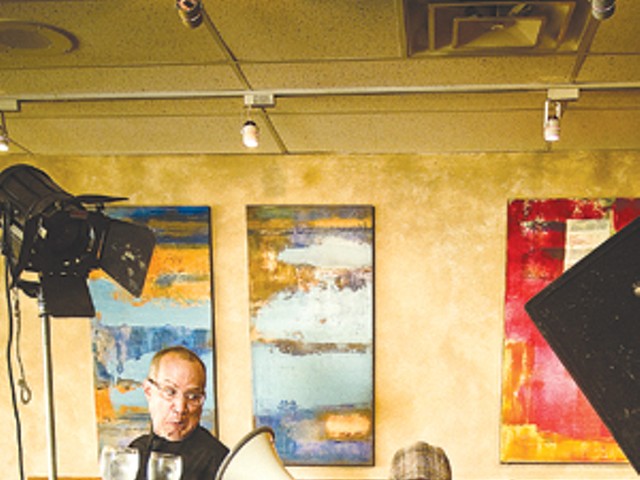When was the last time you met a kid in middle or high school who was actually in shop class? I can't remember, and I have a 16-year-old sister. Information technology is at the forefront of American education, but those jobs are mostly sent overseas, so where does that leave the office worker? How about the unemployed, those cowering at student loan statements, pulling doubles at the Olive Garden with no answer or end in sight?
So, what would you say to your 16-year-old relative if he told you he wanted to opt out of college to seek an apprenticeship as, say, a plumber, mechanic or electrician? Would your reaction be any different if you knew he could charge $70 an hour? Also, did you know that new luxury vehicles don't even have a dipstick to check the oil?
If we're educated, we're useless or, at best, robotic; if we're skilled, we're underappreciated. So says author Matthew B. Crawford.
In his recent best-selling book, Shop Class as Soulcraft: An Inquiry into the Value of Work, ex-Bush think-tank dynamo-turned-vintage motorcycle shop owner Crawford calls out the trend in America's displacement of values pertaining to manual trades while questioning the misguided future of would-be knowledge workers (a dirty word as far as Crawford's concerned).
Writes Crawford: "How was it that I, once a profoundly self-employed electrician, had ended up among these walking wounded, a ‘knowledge worker' at a salary of $23,000. ... Despite the beautiful ties I wore, it turned out to be a more proletarian existence than I had known as a manual worker."
His story's interesting enough — how a guy goes from a West Coast hippie commune to Silicon Valley to Washington, D.C., to trading in his handful of degrees for working on café racers in the woods of Richmond, Va. It makes for an entertaining backdrop. And one can't help but raise a pint to Crawford after sticking it to the man after 11 months working for the incompetent Bush administration.
The author is awfully skilled at raising questions on work and its national value — more than he is answering them. It's as if he proposes we all give up our jobs and follow his lead. But what then? Isn't Dilbert necessary somehow?
"There is a real freedom of speech on a job site, which reverberates outward and sustains a wider liberality. You can tell dirty jokes. Where there is real work being done, the order of things isn't so fragile," writes Crawford, who sees hard hats and Carhartt coveralls as the uniform real workers wear.
"The office has seen the advent of speech codes, diversity workshops, and other forms of higher regulation. Some might attribute this to the greater mixing of the sexes in the office but I believe a more basic reason is that when there is no concrete task that rules the job — an autonomous good that is visible to all — then there is no secure basis for social relations. ... Everyone feels they have to walk on eggshells." Did he just diss diversity workshops? Bleeding hearts beware.
For a book that's sure to capture the attention of blue-collar ratchet workers, Crawford goes out of his way to pull from his rich "I have a Ph.D. in political theory and read more books than you own CDs" lexicon. He tends to talk down to his readers, assuming they have no skilled trade from the get-go. At some points it sounds as if Crawford's just pissed-off, but other times the book reads like a man grieving for a country he sees becoming increasingly weak (in mind, spirit and body).
Then again, this book is meant to light a fire under the butts of those who sit in a chair and stare at a screen eight hours a day. People like me. Did it? I'm fine with the fact Crawford's an unapologetic prick, but he puts himself on a pedestal and continues to jack that pedestal up throughout the book.
Soulcraft has moments of real philosophical spark — "to fix one's car is not merely to use up time, it is to have a different experience of time, of one's car and of one's self" — but it's pretty much a self-help book. It's as if he's saying: "Look, I did it, and maybe you could too ... if you weren't so pathetic. Seriously, what are you doing reading this book right now, you lazy punk?" —Travis R. Wright
Matthew B. Crawford turns an inquiring gaze on the condition of work with a lecture on Oct. 13. At the Wendell W. Anderson Jr. Auditorium inside the Walter B. Ford II Building at the College for Creative Studies, 201 E. Kirby St., Detroit; 313-664-7400.
Travis R. Wright is arts and culture editor of Metro Times. Send comments to [email protected]




